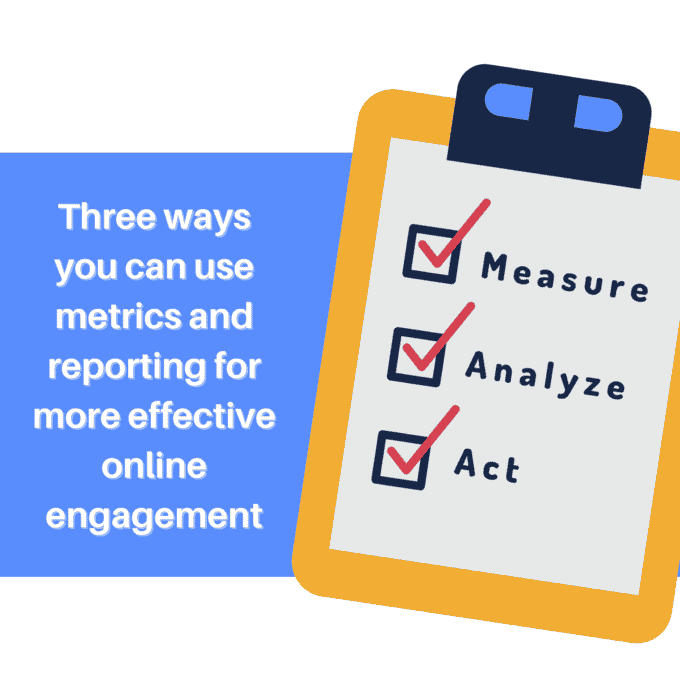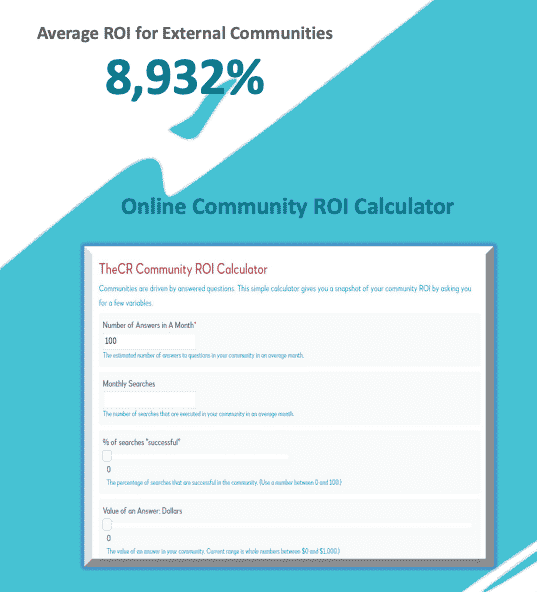Great metrics and dashboards reveal the value of engagement.
Choosing the metrics that tell your community’s unique story of engagement is crucial. What engagement activity is worth measuring? It depends on the strategic, operational, and tactical goals of your community.
Community engagement metrics help to tie engagement to outcomes, and in turn, to business value. Engagement data should be tailored to its audience, ensuring that community metrics are meaningful. For instance, a product manager and a market director may both be interested in the emergent product testimonials in a community, but they are interested in this data for different reasons – and are likely to use it in different ways.
While the product manager may want to understand how the product is used in order to improve the product, the marketing director may be interested in what aspects of the product members are most excited about so they can share it with others. Deciding what data to share, how to present it, and how often, is critical to telling the story of your community in a meaningful way. More importantly, reporting data effectively is what leads to increased support and investment. We break metrics and reporting into three categories: strategic, operational, and tactical.
Strategic Metrics & Reporting in Community
Strategic metrics and reporting is focused on impact and value. How does the community further the strategic objectives of the organization? Why is it a better investment than a more traditional approach to addressing those issues? Senior executives are responsible for budgets, which reflect how the priorities of an organization are expressed and changed.
This is why measuring community ROI becomes important – because it demonstrates effective impact. If organizational change is a strategic goal, showing how communities address organizational change more effectively, for the same investment than another approach, is critical. When reporting on the significant value community brings to company culture, executives who look beyond the revenue benefits will find that the complex problems community solves creates value not only for the bottom line but also for the brand, the employees, and the stakeholders. Community investments are an investment in long-term fiscal health, innovation, and a positive customer experience.
Operational Metrics & Reporting In Community
Operational metrics are focused on how behaviors and workflows are changing. Behavior change is what collectively generates strategic value. Knowing which behaviors are changing, how fast, and in what areas of the community is critical to understanding how to encourage the spread of positive behaviors and discourage the negative ones.
Operational metrics help decision-makers monitor how well plans are working so they can learn and adjust as needed. If behaviors over a quarter don’t change, then it may prompt a change to how the community is being managed – or when looking at benchmarks over time, it may just signal a traditionally slow period in the life of the community.
Done well, operational metrics help:
- See the gaps and opportunities
- Probe deeper into whether a management approach is working
- Celebrate good performance and reflect on what is working well
Tactical Metrics & Reporting in Community
Tactical metrics are the day-to-day activity measures that help community managers understand the direct impact of their actions. How many new comments happen after a question of the week is posted? What percent of the community comes back after newsletters go out? Are those metrics better or worse than prior periods, which can tell the community team if the quality of their efforts is improving?
Done well, tactical metrics help
- Understand what content and programming works
- Identify times and periods that have different engagement levels
- See how changes in management influence engagement
Three recommendations for more effective engagement
Measure: Engagement data is vital to understanding who, how, and when members engage. Identifying key behaviors when designing metrics will help the organization understand how engagement impacts work. Translating this impact into value makes it meaningful to the business.
Analyze: Combine data and member research to understand why members engage – and how it impacts their success. Use this analysis to create user stories that resonate for both users and internal stakeholders so everyone can see the impact
Act: Use your understanding of member activity and behaviors to build successful patterns into community programs, functionality, and management approaches. Experiment to see what works.


